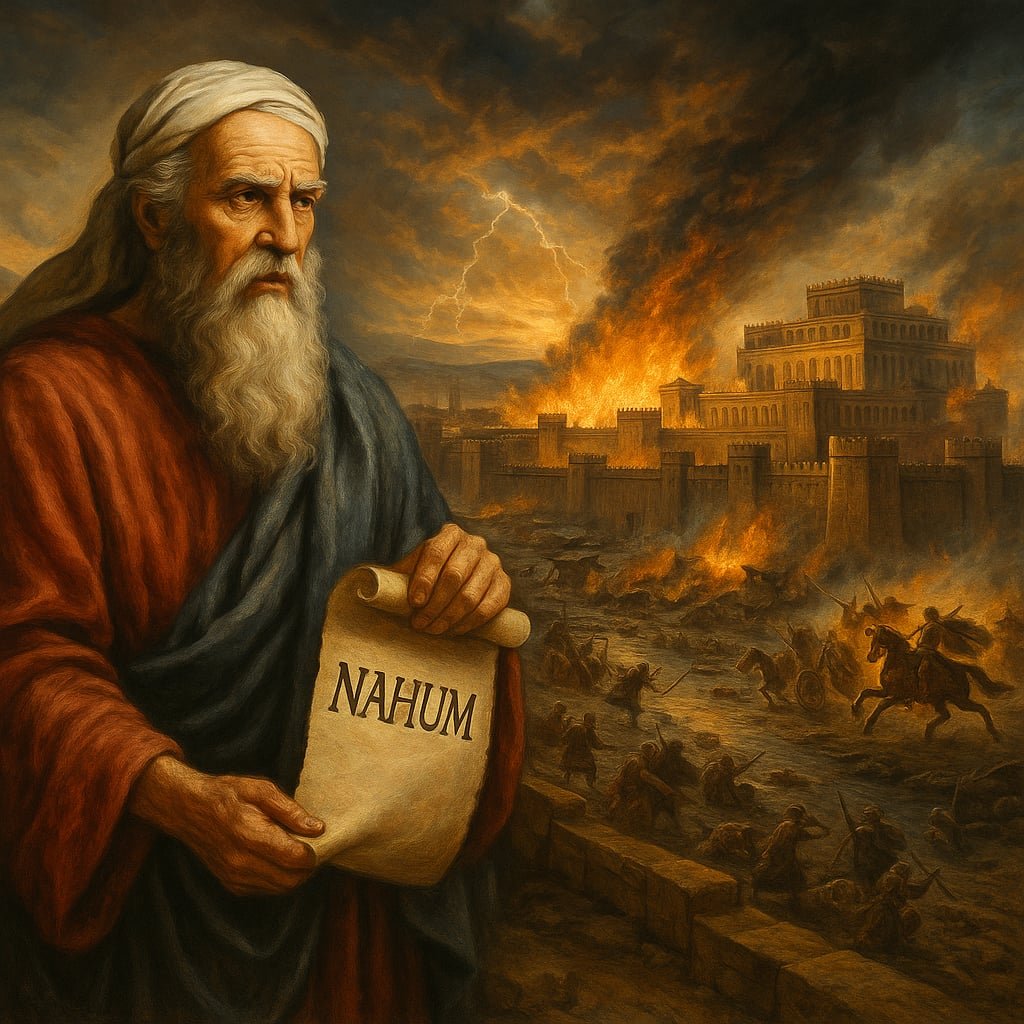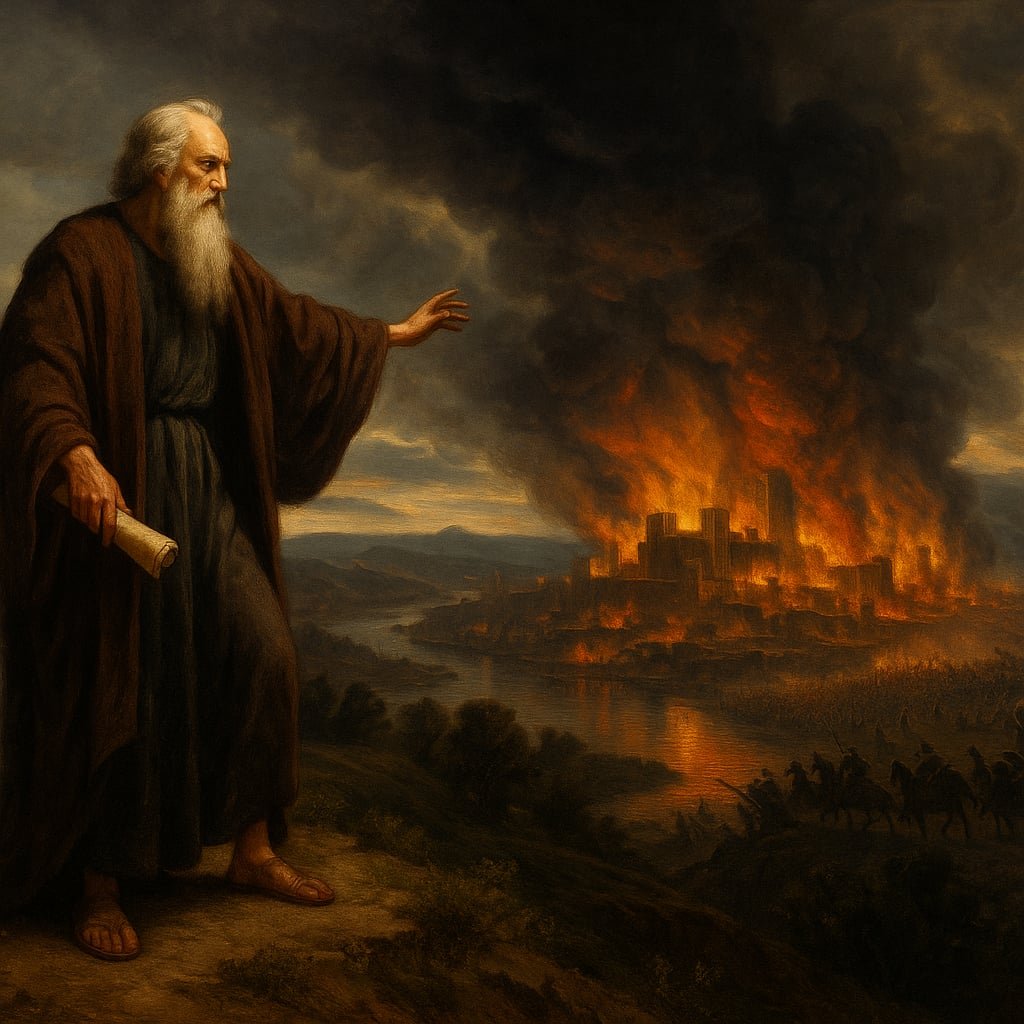The Book of Nahum is one of the shortest prophetic books in the Bible — only three chapters — yet its message thunders through history. Written to the people of Judah, it foretells the fall of Nineveh, the Assyrian Empire’s proud capital, which had once repented at Jonah’s preaching but had returned to cruelty, idolatry, and oppression. Nahum’s prophecy is both a warning to the arrogant and a comfort to the oppressed: God sees, God remembers, and God will act.
Historical Context: Nineveh’s Rise and Fall
Nineveh was the jewel of the Assyrian Empire, fortified with massive walls, palaces, and temples. Its military conquests were unmatched, but so was its brutality. Assyrian kings boasted of flaying their enemies alive, deporting entire populations, and plundering cities without mercy.
Yet, about 150 years earlier, Nineveh had experienced a spiritual revival when Jonah preached repentance. That revival faded, and by Nahum’s time (around 650–620 B.C.), the city had returned to its old ways. Nahum declared that God’s judgment was certain — and unstoppable.

The Message of Nahum
Nahum’s name means “comfort” or “consolation,” which is striking because his prophecy is filled with scenes of destruction. But for Judah, these words brought reassurance: their tormentor would be overthrown.
Key Themes in Nahum:
- God’s Sovereignty over Nations — Empires rise and fall under God’s hand.
- Justice for the Oppressed — God does not overlook cruelty or injustice.
- The Certainty of Judgment — When God decrees a downfall, no power can resist.
- Hope for the Faithful — Even in the chaos of nations, God is a refuge.
Chapter-by-Chapter Overview
Nahum 1 — The Avenger and Refuge
God is portrayed as both a jealous defender of His people and a refuge for those who trust Him. “The Lord is good, a stronghold in the day of trouble” (Nahum 1:7). This chapter sets the stage: judgment is coming for Nineveh, but safety awaits those who take shelter in the Lord.
Nahum 2 — The Siege of Nineveh
The prophet paints a vivid picture of invading armies, chariots racing through the streets, and the palace collapsing. God Himself is behind the overthrow: “Behold, I am against you, declares the Lord of hosts” (Nahum 2:13).
Nahum 3 — The Woe of the Wicked City
Nineveh is condemned as a city of bloodshed, lies, and plunder. Her downfall will be total and public — a warning to all nations that oppress others. The book closes with a striking statement: “There is no healing for your wound” (Nahum 3:19).
Spiritual Lessons for Today
Although Nahum’s prophecy was fulfilled in 612 B.C. when the Babylonians and Medes destroyed Nineveh, its message still speaks:
- No empire or leader is above God’s justice. Power without righteousness leads to ruin.
- God’s timing is perfect. The oppressed may wait years, but God’s deliverance comes.
- Trust is the antidote to fear. When chaos surrounds us, we can take refuge in Him.
Prophetic Echoes
Nahum’s vision of divine justice parallels the themes of Revelation: God’s ultimate judgment on evil and the vindication of His people. Just as Nineveh’s fall was a warning to ancient empires, the final judgment will be a warning to all powers that defy God’s authority.
Conclusion
The Prophecy of Nahum is a reminder that history is not random — it is guided by the hand of a righteous God. Empires may rise with pride, but they fall at His word. For the faithful, Nahum’s message is a promise: God is our refuge, and His justice will prevail.

